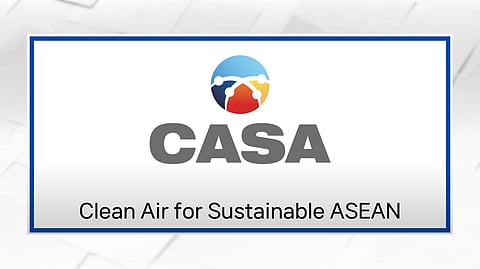
- NEWS
- the EDIT
- COMMENTARY
- BUSINESS
- LIFE
- SHOW
- ACTION
- GLOBAL GOALS
- SNAPS
- DYARYO TIRADA
- MORE

The Philippines and the Republic of Korea have signed a Memorandum of Understanding for the Clean Air for Sustainable ASEAN (CASA) Cooperation Project, a two-year initiative spanning 2025 to 2026 aimed at strengthening air quality management systems.
The agreement was signed in Pasay City by Assistant Secretary for Environment and concurrent DENR Environmental Management Bureau (EMB) director Jacqueline A. Caancan and CASA Principal Investigator Professor Kiyoung Lee of Seoul National University (SNU) Graduate School of Public Health.
The CASA Project, funded by the ASEAN–Republic of Korea Cooperation Fund, aims to equip ASEAN Member States with advanced tools and expertise for robust air quality management.
“By bringing together scientific research and international teamwork, the CASA Project, a partnership between the EMB and Seoul National University, will create better data and monitoring systems, laying the groundwork for smarter, evidence-based policies,” Caancan said.
She underscored the importance of collaboration in addressing transboundary air quality concerns, stating the agreement moves both nations closer to a shared goal of cleaner air, healthier communities and stronger resilience against environmental challenges.
The signing ceremony also included the official handover of two state-of-the-art air quality monitoring equipment units from South Korea.
The new equipment, which measures key pollutants like PM2.5 and O3, will be installed at monitoring stations in Pasay City and Quezon City, expanding the Philippines’ capacity to capture real-time data.
The new data is considered vital for developing evidence-based environmental policies and targeted interventions.
Counselor Hyun Jung JUNG of the Embassy of the Republic of Korea in the Philippines noted the project’s goal is to “identify the sources and health impacts of air pollution, strengthen monitoring systems, and develop effective policy responses.”
“By establishing air quality monitoring infrastructure throughout the Philippines and across ASEAN, and by harnessing scientific analysis, the CASA project will enhance ASEAN’s capacity to respond to air pollution, thereby improving the quality of life and public health of our peoples,” Counselor Jung said.
In addition to the equipment, the CASA Project includes technical training and capacity-building activities for EMB air quality specialists in monitoring, data interpretation and policy formulation.
Meantime, Caancan expressed optimism that the partnership will serve as a model for regional environmental cooperation.
